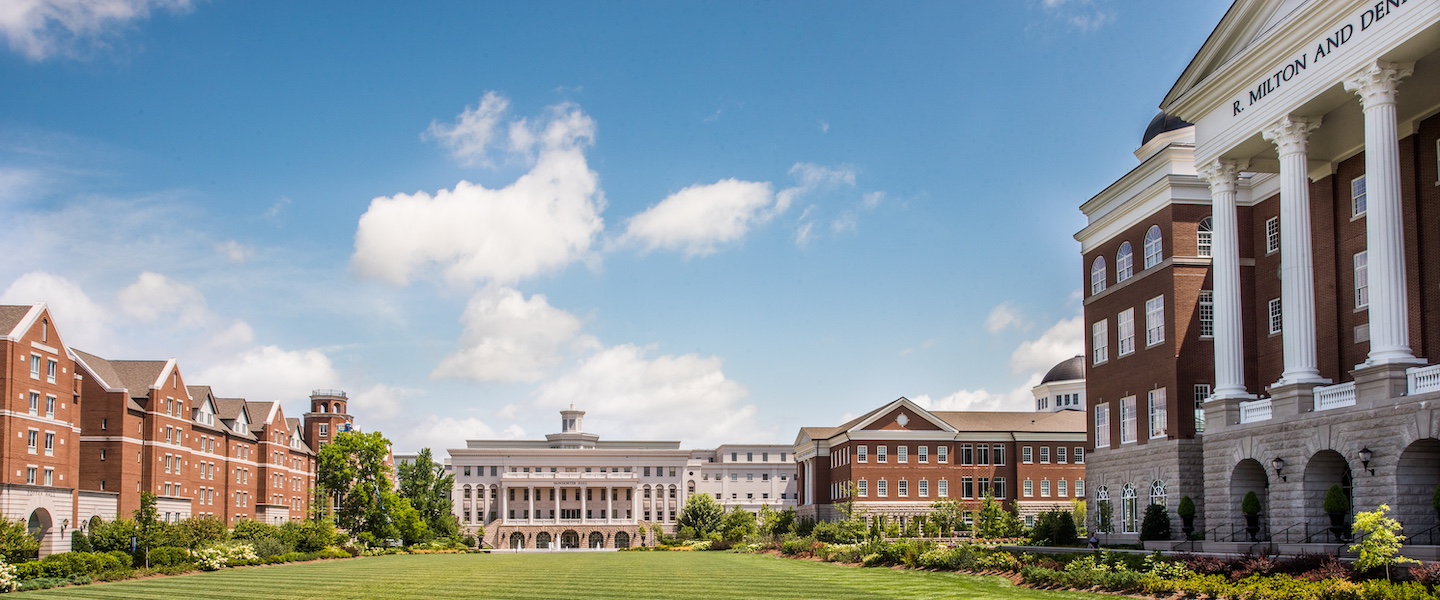A student’s guide to making the most of a college tour
There are many things to be aware of when choosing a college or university: campus locations, college extracurriculars, undergraduate opportunities and much more. One of the best ways to figure out if a college is right for you is by going on a campus visit.
While there can be a lot to keep an eye out for, here are 15 key things to look for on your next college tour!
1. Majors/Programs 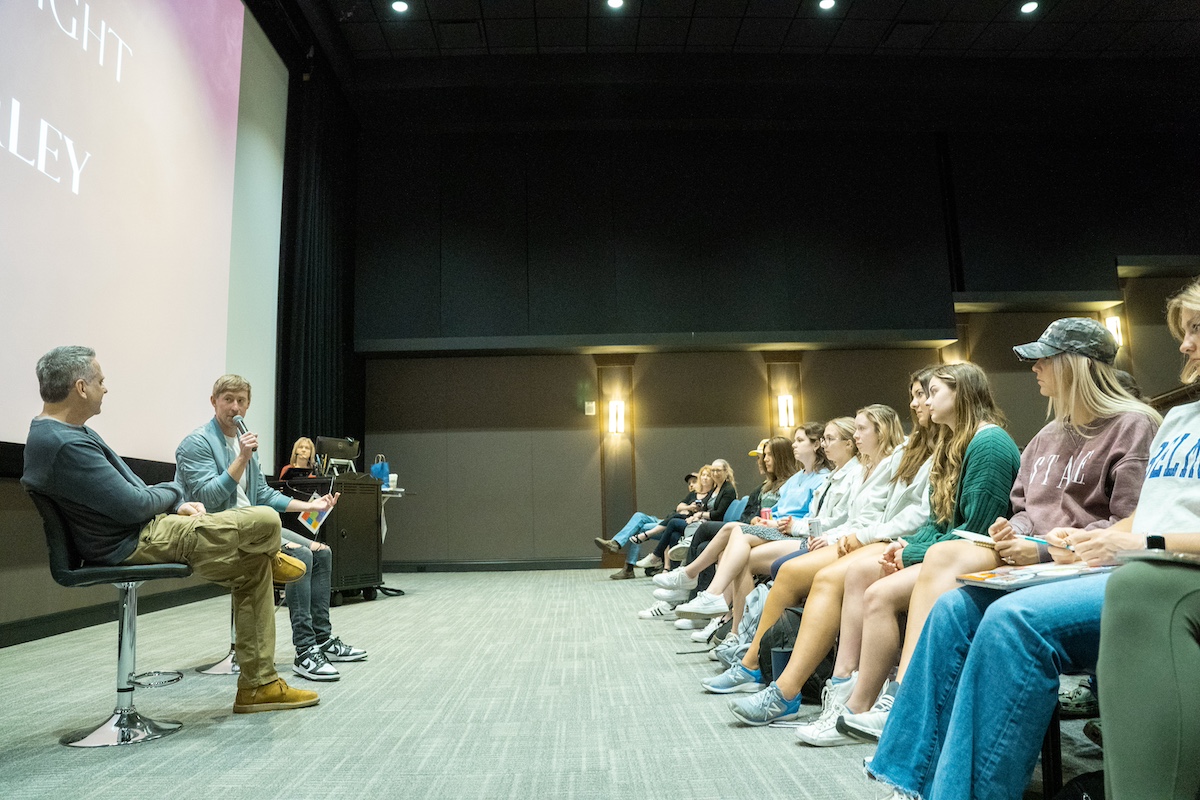
One of the most important things to look for during a campus visit is what majors, minors, programs and emphases are offered by the college.
Finding the best colleges for your major is an important first step in the process, and in-person visits are a great opportunity to hear what people on campus have to say about the majors you’re interested in.
Campus visits can be used to ask current faculty and students what programs the school is known for and where they shine. Belmont, for example, is known as a leading university for music and music business. Look for well-known faculty and alumni, top 10 lists for your intended major and what those on campus during the visit have to say about the university's biggest programs.
2. Professors
Professors make or break the classroom experience. Ask current students how they like the professors and what their overall reputation is. Ask what their teaching style is, whether they’re strict graders, if they are accessible during office hours and any other questions you may have.
You can also use the campus visit as an opportunity to meet some of the professors in your major and ask them about the classes they teach and the different ways they support their students.
3. Campus Look
Campus look and feel is often surprisingly overlooked during a college visit. At first glance, you can see first-hand if the buildings are nice and the grounds are well-maintained.
It’s also important to look for other facts about the campus itself. Is it a safe college campus? Is it centrally located? Is it big or small? Do you want it to be centrally located or out of the way? These are great questions to ask during a college visit. You can also get real students’ opinions on the campus and see how everyone treats it. 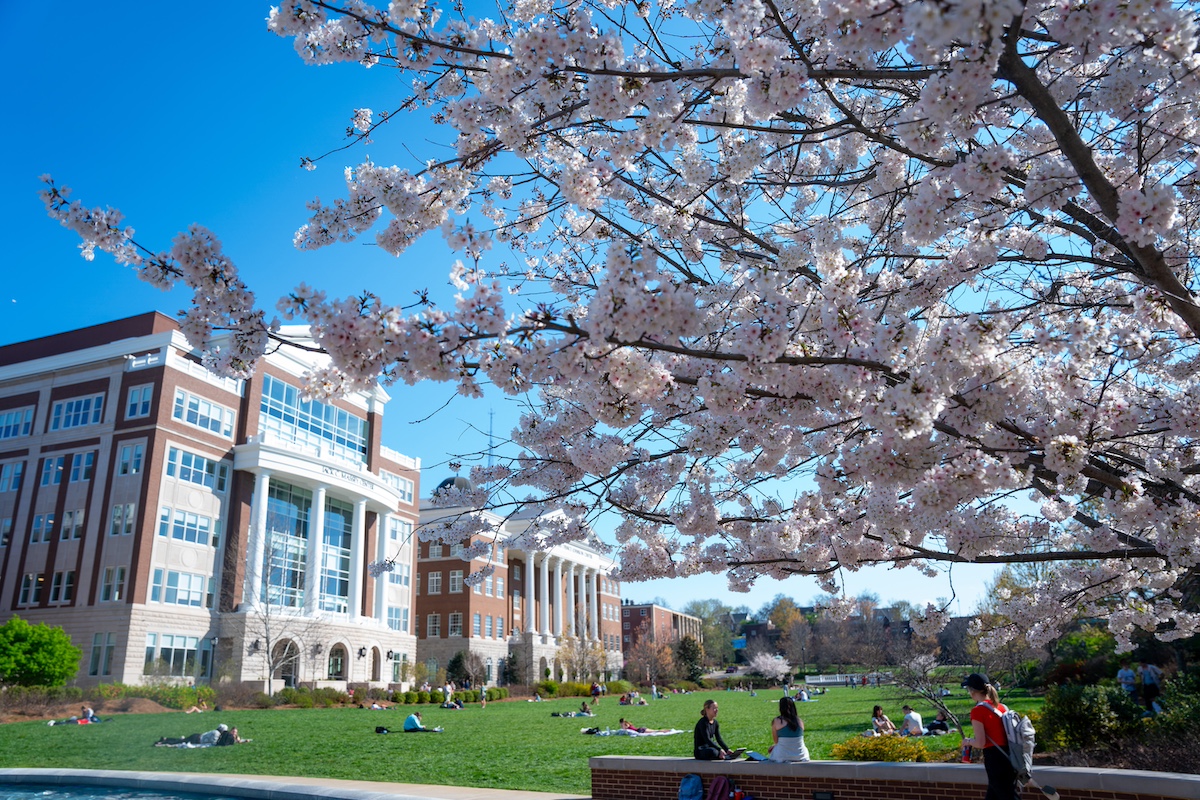
4. Campus Location
One great thing you get to do during a campus visit is explore the campus location. By visiting the city, you get to learn how long it takes to get to school from home, and a little bit of asking around or taking a trip into town lets you see what other students do off-campus.
Here at Belmont, our Nashville location puts students in the heart of one of America's most vibrant cities, known for its rich culture, music scene and countless opportunities for both recreation and professional growth.
As you explore any campus location, take time to learn about important practical details like its overall safety, whether it’s a major city or a college town and where essential places like grocery stores and pharmacies are.
5. Academic Resources
Access to academic resources can offer a lot of help during major projects, so it’s important to know what the university offers. Take the time during your visit to learn where the library is, ask if the school has free access to academic journals and see what kind of student tutoring or learning centers are available.
6. Campus Health Resources
Your mental and physical health is important. During a college visit, you can learn more about what kinds of resources the school offers for its students and how accessible those resources are.
Many universities have on-campus pharmacies and mental health services, so finding the location of those resources and asking students what their experience has been like using them can help you be more prepared when you’re feeling unwell.
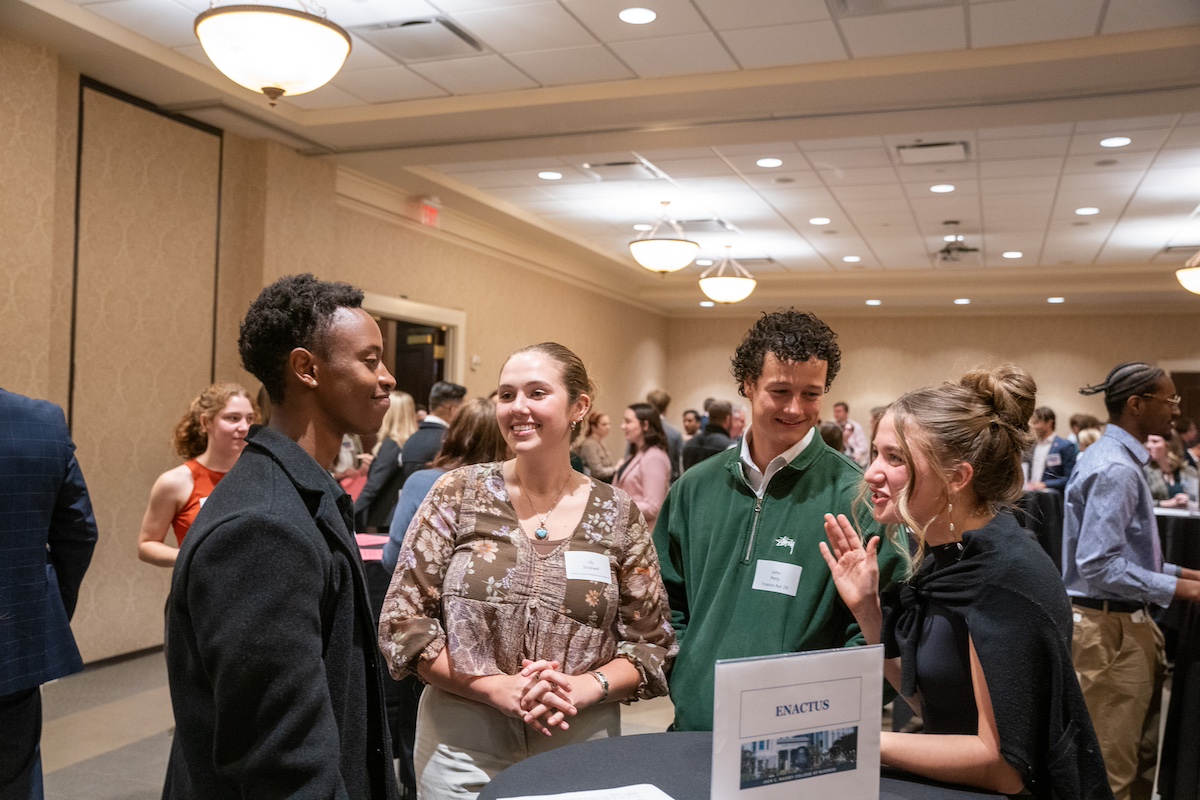 7. Networking Opportunities
7. Networking Opportunities
While it may not seem important as a freshman, asking about what undergraduate networking opportunities exist during a campus visit can be incredibly helpful during your future job search.
If students say that their professors are well-connected within the industry and that they connect their students with other professionals, then you know that the university is willing to represent its students in the professional world.
You can also see if the school or any pre-professional student organizations host networking mixers throughout the year or ask if guest speakers come to campus for events. All of these undergraduate networking opportunities make it easier for students to learn more about their future careers and find their place in that field.
8. Undergraduate Research/Internships
It's important to do things in college to get career readiness skills, no matter your major! Asking students during a campus visit what undergraduate research/internship opportunities they’ve had will help you see how you can connect with your major in a tangible way throughout your college career.
Whether you’re a STEM, business or liberal arts major, events like frequent internship fairs or undergraduate research symposiums are highlights of a good college experience.
9. Study Abroad/Away Opportunities
College offers students once-in-a-lifetime opportunities to study while traveling the world through study abroad and study away programs. Universities often have study abroad offices that you can visit during your campus visit. These offices work with students across majors to ensure they have access to locations, classes and internships that will grow them personally and academically.
Some colleges also offer study away programs like Belmont USA, which give students the chance to spend a semester or academic year interning in sought-after locations like New York City or Los Angeles.
Talking to students and faculty who have been abroad will help you determine if studying abroad is right for you.
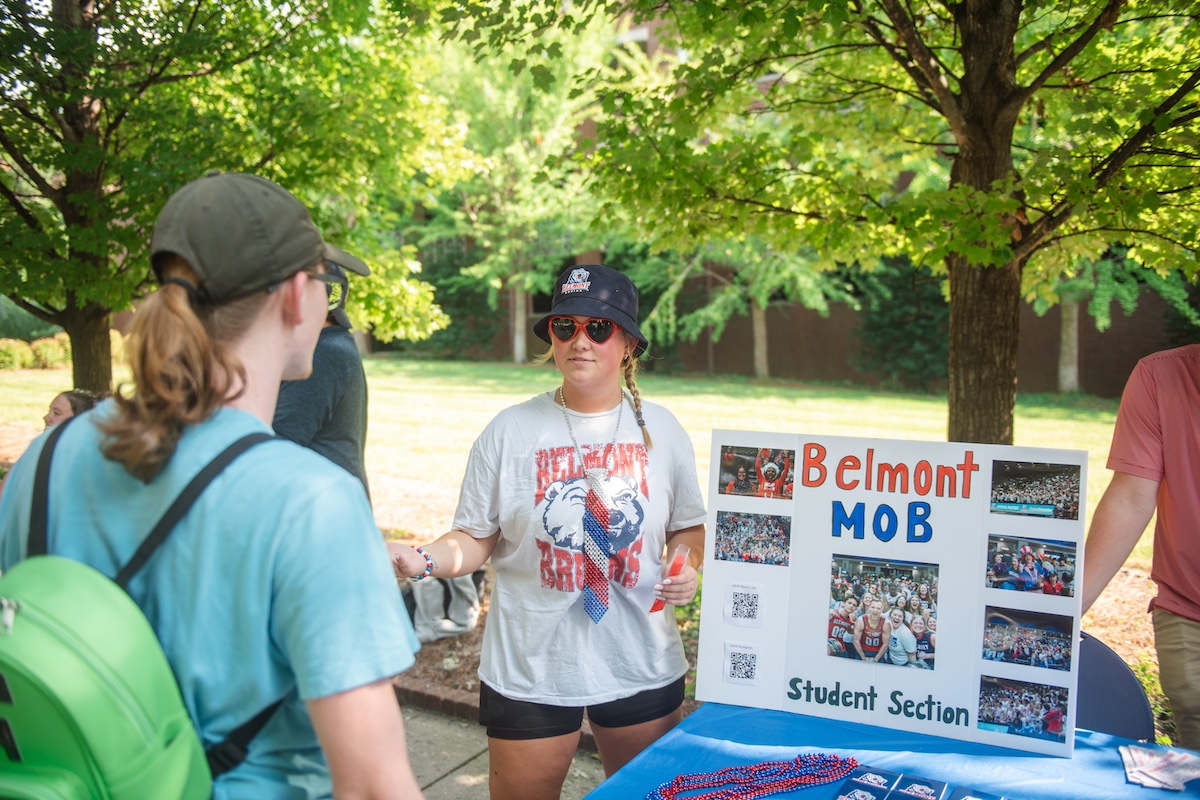 10. Clubs and Student Organizations
10. Clubs and Student Organizations
College isn’t just a time for academics; participating in clubs and other student organizations gives you the chance to meet new people and discover new interests.
Use your campus visit to learn about all the college extracurriculars offered by the school! You can ask what pre-professional organizations are in your major, what Greek life is like on campus, how to join intramurals and where to get connected with faith-based organizations. If you can’t find what you’re looking for, ask how to start your own club!
11. Campus Events
The energy of a college campus is just as important as its other offerings, and learning about what campus events it offers is a great way to better understand the campus’ atmosphere.
If you’re a big sports fan, knowing what sports are played and how students get access to tickets is essential. If you love the arts, asking how often the theatre department puts on musicals is a must.
Engaging with the campus is a wonderful way to feel more at home with your school, so learning how current students are involved in these events helps you figure out what kind of campus you want to be part of.
12. On- and Off-Campus Housing
Housing options vary greatly between schools, so learning what freshman and upperclassman housing tends to look like is worth looking into during a visit. Most schools require freshmen to live on-campus and let you tour a freshman dorm.
It's also worth asking current students what they think about the housing, whether they live on- or off-campus as upperclassmen and what the differences are between the two.
13. Dining Options
Much like housing, meal plans and dining spaces look different from school to school. Colleges will always have a cafeteria or dining hall, so try to eat lunch there during your campus visit to see what the food is like.
Many universities will also have restaurants on-campus that you can purchase food using real money or meal swipes. Compare some of your favorite foods to what the school offers so you know you’ll get three good meals in each day.
14. Freshman Orientation
Freshman orientation is the first major event most students experience on a college campus. Campus visits themselves are a good example of how a school will treat its incoming students, and taking the time to learn about freshmen orientation will give you an even better sense of that relationship.
For example, Belmont’s Towering Traditions orientation connects new students with their future classmates and current students through informational sessions and group bonding activities. These events help orient students to the Belmont experience and let them meet some of the people they will be in class with during their first semester in college.
15. Financial Aid/Scholarships
College can be expensive, but there are many ways to keep costs down at the universities you’re planning on visiting. See if you can visit the school’s undergraduate financial aid office to learn more about what institution-specific scholarships are offered that you qualify for. You can also ask if there are any state- or nationally-recognized scholarships accepted by the university, or if they are part of any programs that offer tuition aid for in-state students, children of state employees, military members and their families, or other groups.
Make the Most of Your Campus Visit
Campus visits can seem overwhelming; it feels like there’s so much to look at and barely any time to look. By focusing on the items in this list, you can make the most out of your campus visit and find out if the college you’re touring is right for you.
Common Questions About Campus Visits
Still have questions about campus visits? Explore our FAQ section below.
A campus visit is a time to tour a college campus in-person, ask connect with current students and faculty, explore different parts of campus life and get an overview of what your life would look like if you attended that college.
Campus visits are absolutely worth it! The in-person experience is invaluable and gives you a real sense of what college life is. If you cannot visit a campus in-person, many universities offer virtual tours and have current students on-call to answer questions via email or phone.
While you typically have to pay for travel and lodging during a campus visit, colleges do not charge you to tour their campus.
Learn More
Interested in Belmont?

